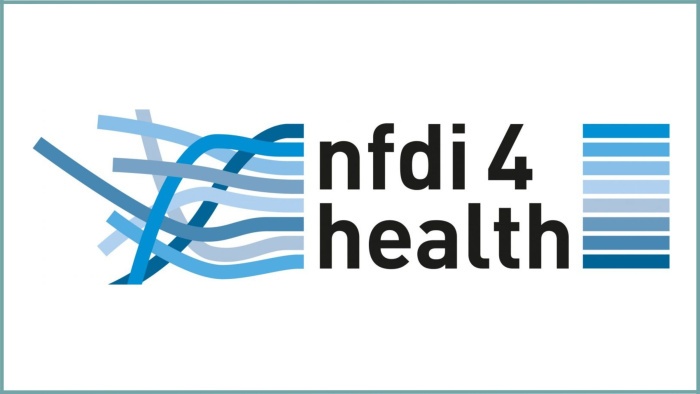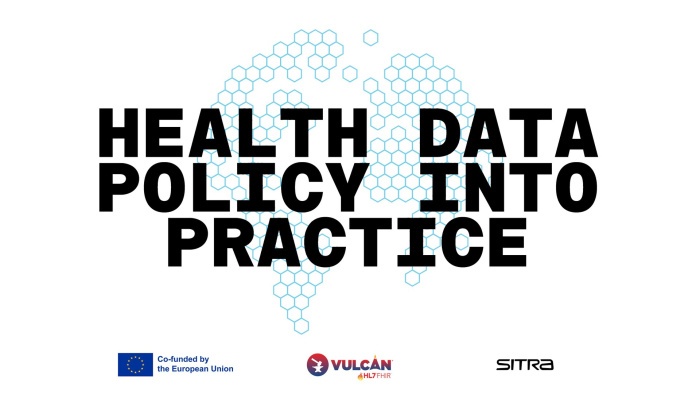Consent-Free Research Use of Health Data Receives Widespread Support from the Population
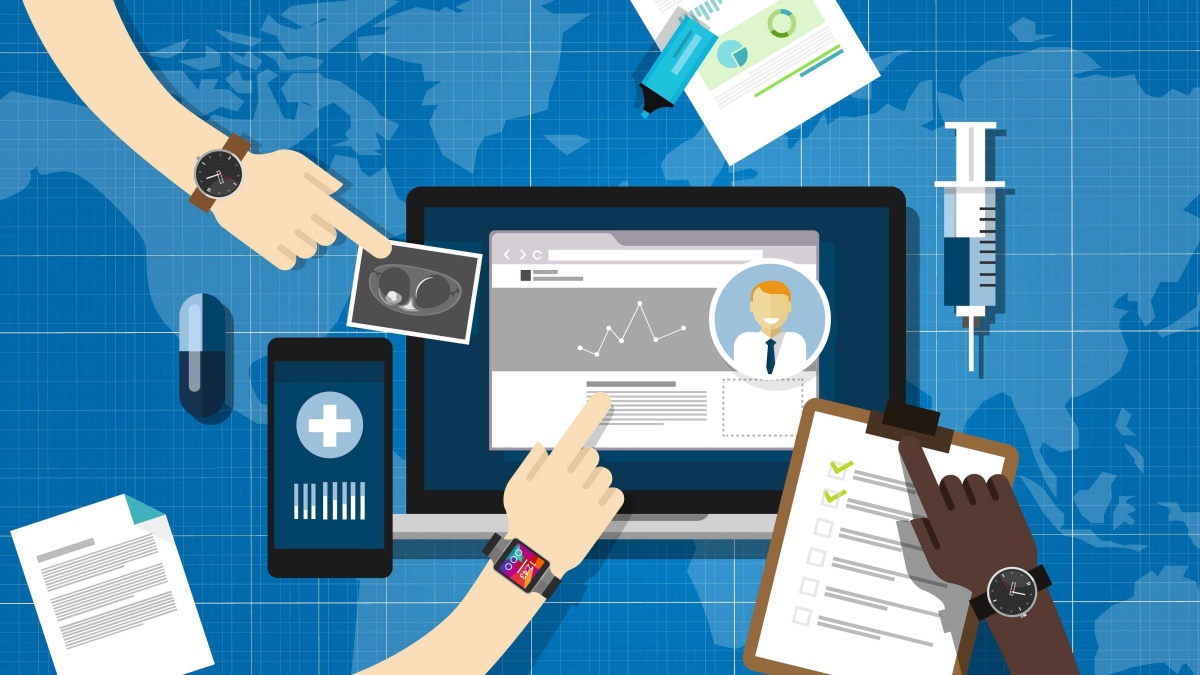
© Bakhtiar Zein/Shutterstock.com
More than 86 percent of Germans would be in favor of using health data for publicly funded medical research without the consent of the individuals involved. However, this would require that data usage and access are regulated by law and adequately controlled. This was the result of a representative forsa survey commissioned by the TMF.
Health data, which can be very valuable for medical research, is generated in many places – not only in hospitals, doctor's offices, and pharmacies but also by health insurance companies and insurers. Currently, experts across Germany are working to make these data technically and organizationally usable for medical research. However, in practice, it is challenging to obtain consent from all individuals for the use of their data. The Health Data Usage Act (GDNG) recently laid the foundation for the use of health data for research under certain conditions without consent. To assess the acceptance of consent-free "data donation" for research within the German population, the TMF commissioned the market research institute forsa to conduct a survey with approximately 3,000 participants from its forsa.omninet panel in 2023. The results were published in March 2024 in the scientific journal Heliyon.
Broad Acceptance of "Data Donation" in the German Population
More than 86 percent of respondents supported the use of health data for publicly funded research without consent. However, they emphasized that individuals should be able to easily and permanently opt out of this so-called "data donation." The acceptance of a similar arrangement for private-sector medical research (e.g., by pharmaceutical companies) was 66 percent, which is significantly higher than approval rates in previous surveys. Therefore, a majority of Germans generally support data donation. However, more than two-thirds of respondents expressed a desire for more information about medical research using health data. At the same time, nearly three-quarters of participants believed that each citizen is personally responsible for acquiring sufficient knowledge to make an informed decision about whether to participate in data donation.
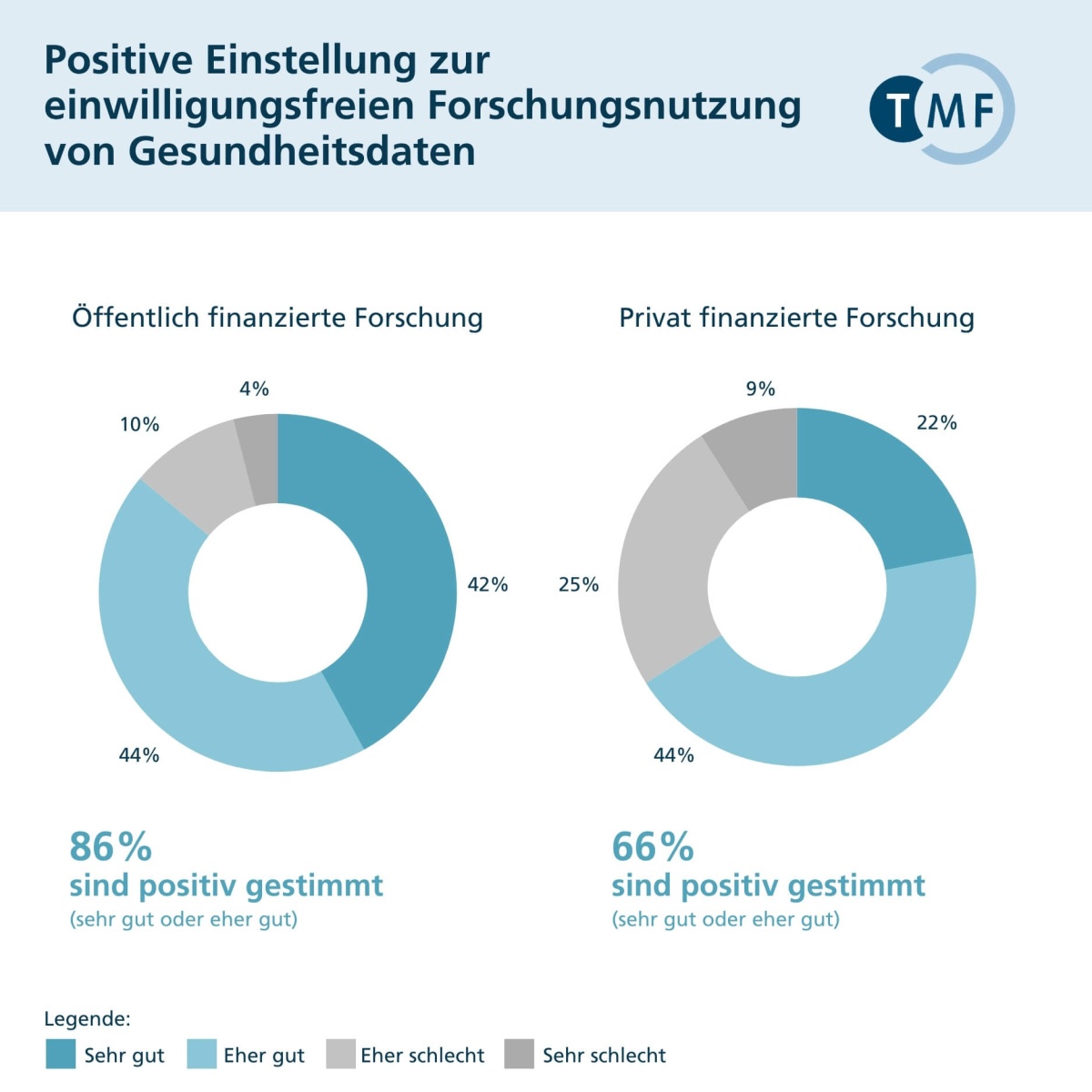
Reasons for the Acceptance of Data Donation
According to the forsa survey, there are three main reasons for a positive attitude toward data donation for public or privately funded medical research: 1. a sufficiently high appreciation of the respective research, 2. the belief that everyone ultimately benefits from medical research and should therefore contribute to it, and 3. a high level of trust in data protection and control over data usage. Reservations about data donation for private-sector research mainly stemmed from concerns that companies might sell the data to third parties and that data protection or adequate control over data usage might not be guaranteed. The potential lack of commercial companies' orientation toward the public good was less of an issue.
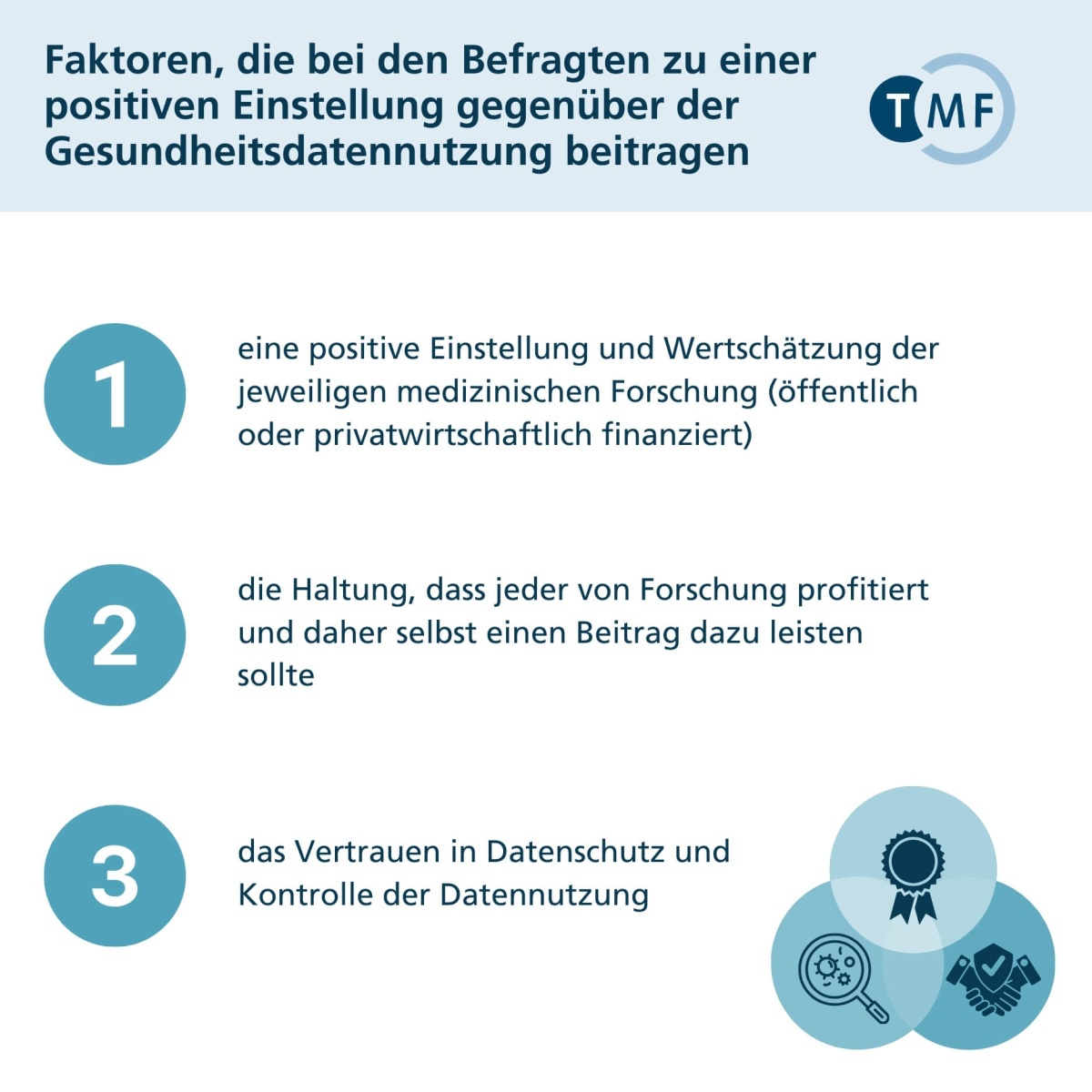
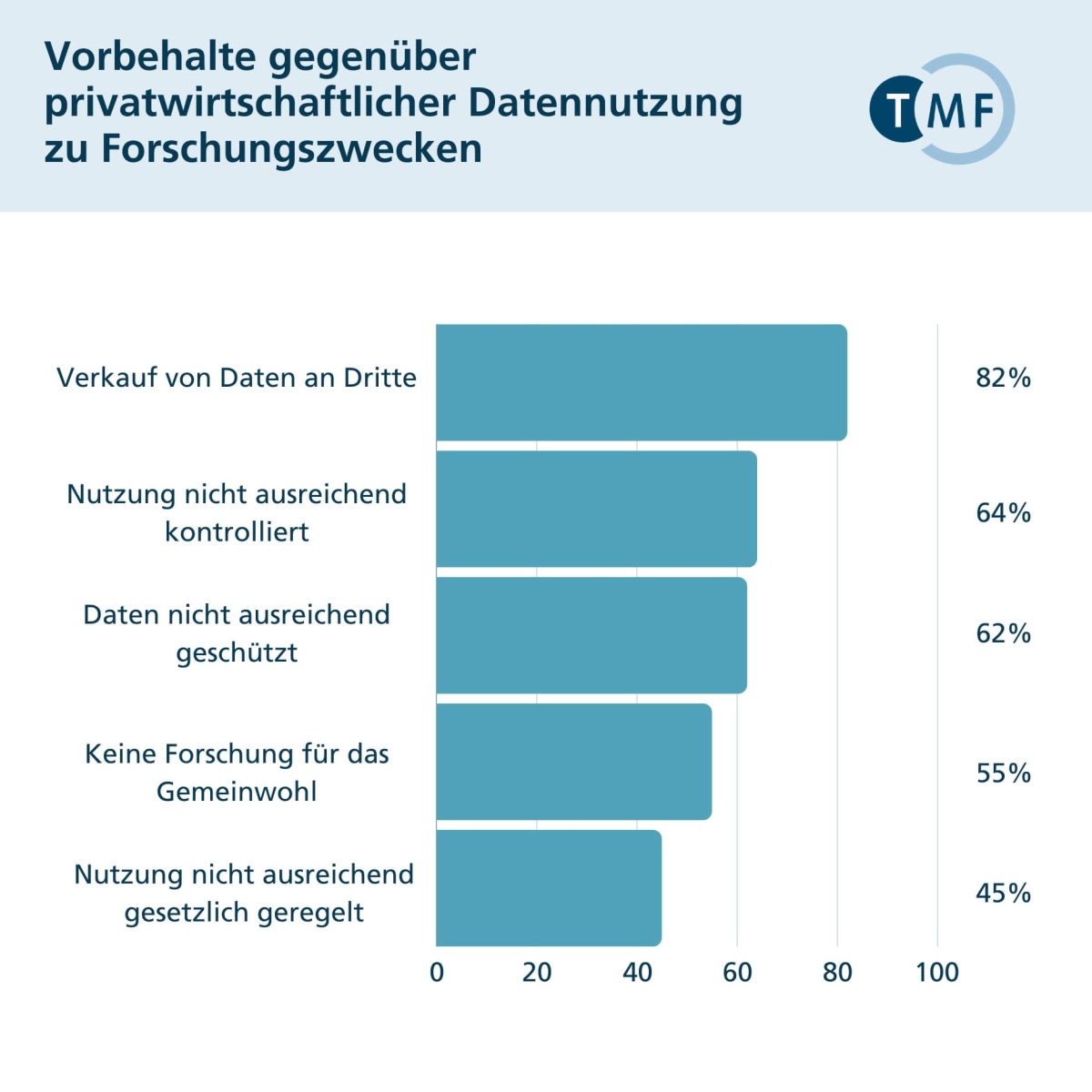
Information and Trust as Prerequisites for the Introduction of an Opt-Out Solution
The forsa survey by the TMF confirms the changing attitude of citizens towards the reuse of health data, which has become increasingly visible in many areas. Currently, there is a positive climate in Germany for the introduction of consent-independent usage options, particularly when these are combined with the possibility of low-barrier opposition (opt-out). However, the current interest in the subject should be used to establish greater health data literacy among the population, thereby strengthening trust in medical research in exchange for the elimination of education and consent. "The design of the data donation as an opt-out solution does not mean abandoning the paradigm of informed consent," emphasizes Dr. Gesine Richter from the University of Kiel, who led the survey. "Rather, foregoing education requires an expansion of information offerings that enable people, in the sense of 'health data literacy,' to better understand and weigh the risks and benefits of data-intensive medical research," says Richter.
The design of the data donation as an opt-out solution does not mean abandoning the paradigm of informed consent.
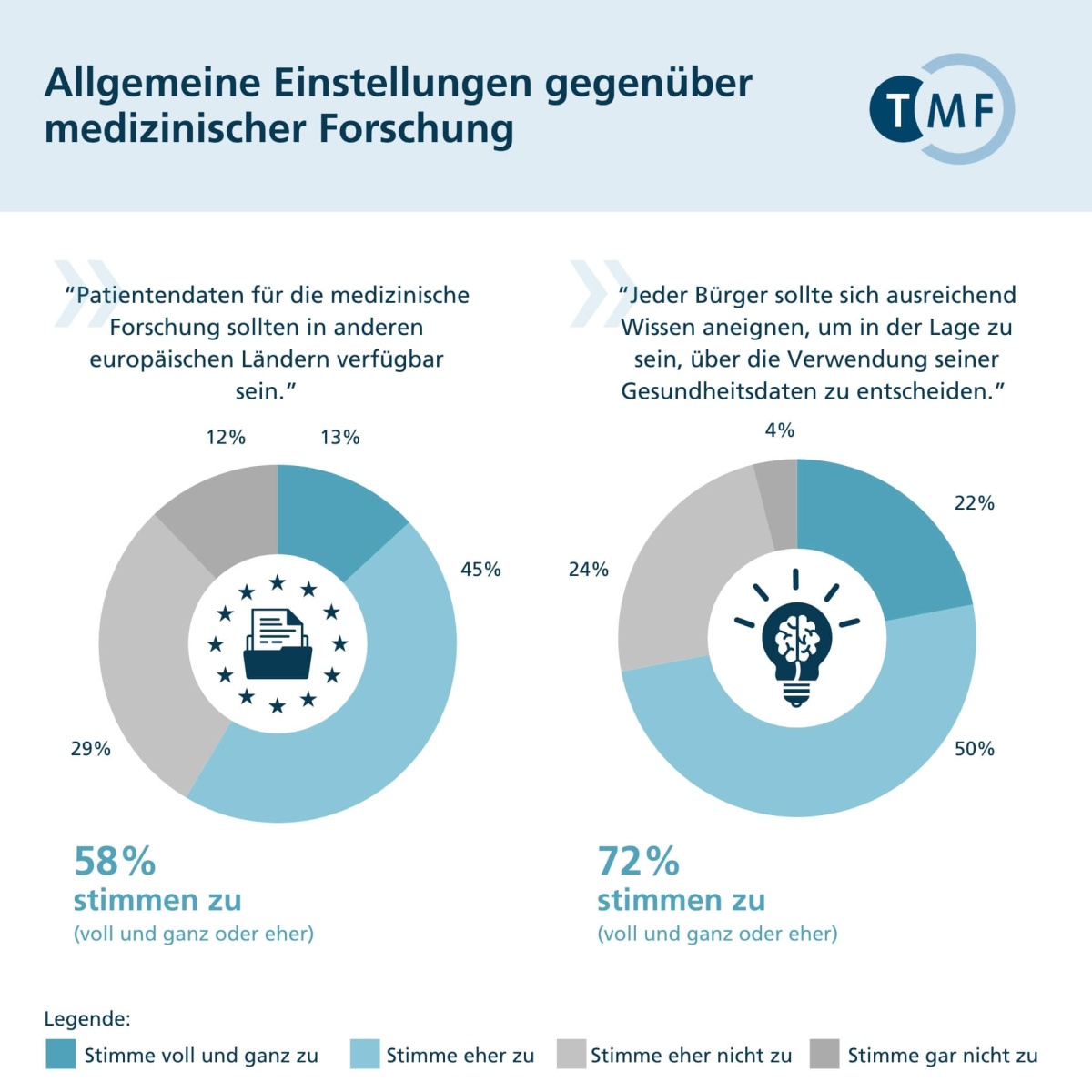
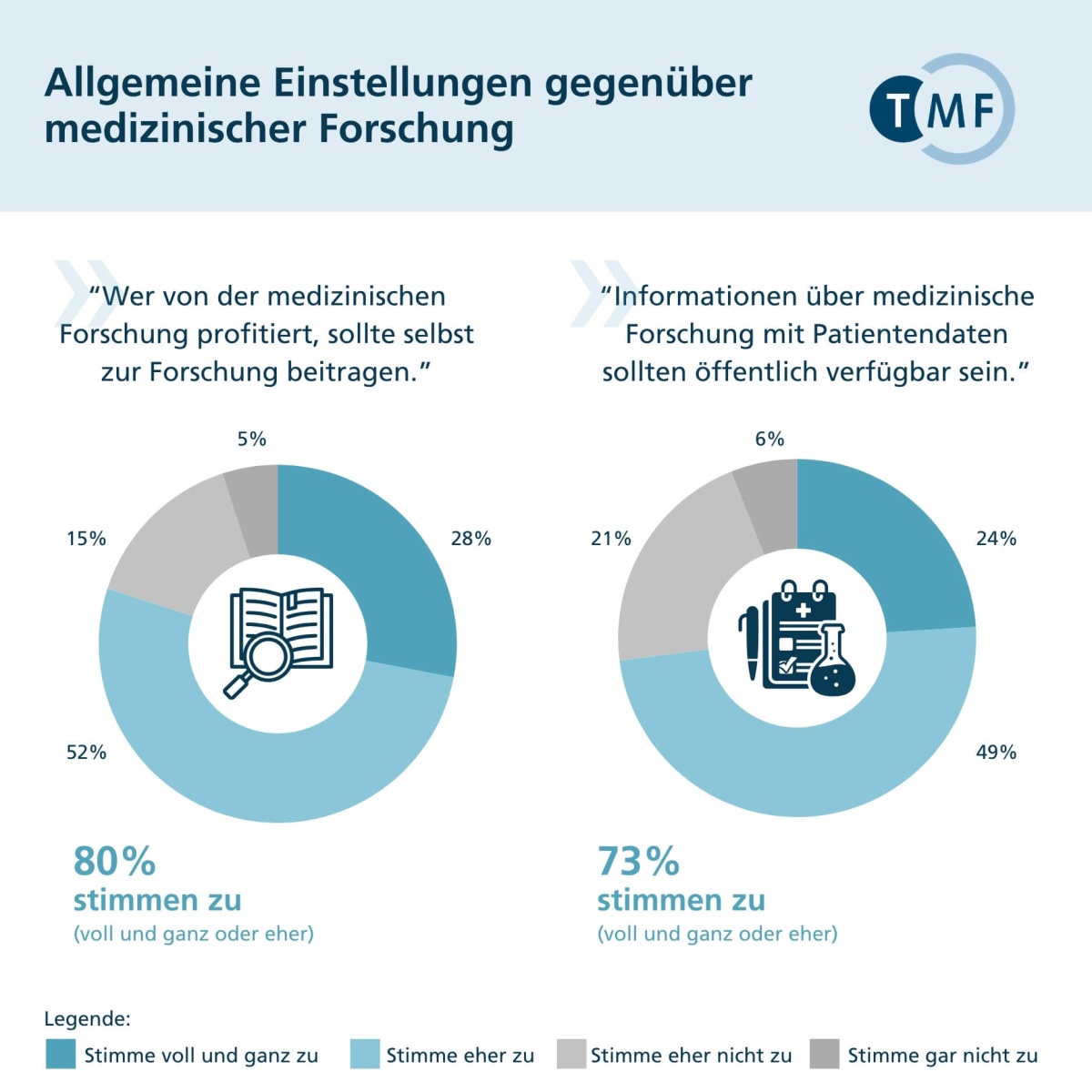
Political Decisions Have Been Made
"The Health Data Usage Act (GDNG), passed by the Bundestag at the end of 2023, lays the legal foundation for improved, simplified data usage while simultaneously tightening data protection," says TMF Managing Director Sebastian C. Semler. With the permission for data usage, the GDNG also includes the obligation to inform the public about the type, scope, and results of research conducted with the data. Additionally, a central public registration requirement for all data usage projects is planned. In total, this will also require a clear public representation of scientific projects involving the secondary use of health data, similar to what has been mandatory for clinical trials for a long time.
Original Publication
Gesine Richter, Nourane Trigui, Amke Caliebe, Michael Krawczak: Attitude towards consent-free research use of personal medical data in the general German population, Heliyon, Volume 10, Issue 6, 2024, e27933, ISSN 2405-8440, https://doi.org/10.1016/j.heliyon.2024.e27933.
Press Contact
Wiebke Lesch
Tel.: +49 30 2200 24731
Mobile: +49 177 2663257
Email: presse@tmf-ev.de
X: @tmf_eV
Downloads
Further Information
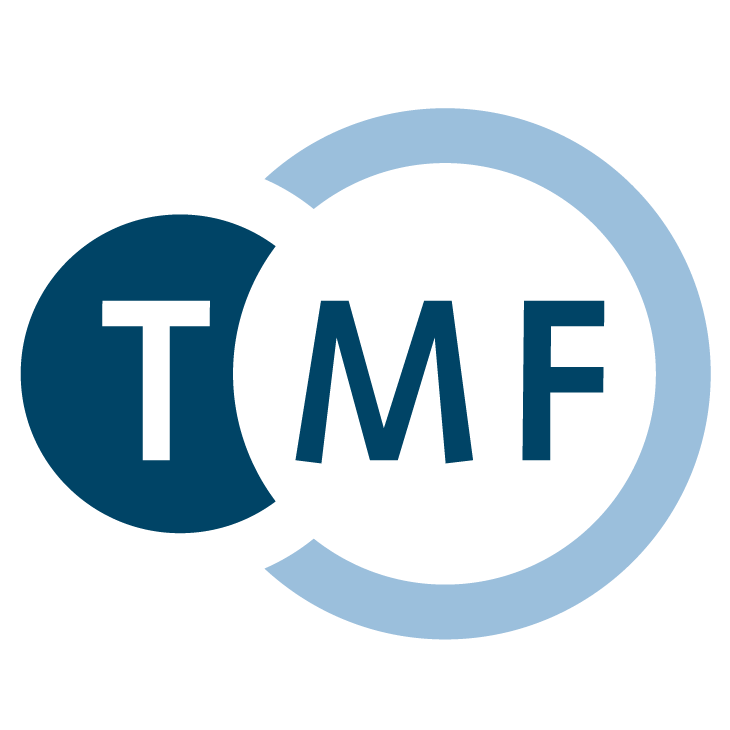
Über die TMF e.V.
Die TMF – Technologie- und Methodenplattform für die vernetzte medizinische Forschung e.V. steht für Forschung, Vernetzung und Digitalisierung in der Medizin. Sie ist die Dachorganisation der medizinischen Verbundforschung in Deutschland, im Rahmen derer Spitzenforscherinnen und -forscher Wissen austauschen, gemeinsam Ideen und Konzepte entwickeln und so die Zukunft der medizinischen Forschung im digitalen Zeitalter gestalten.
